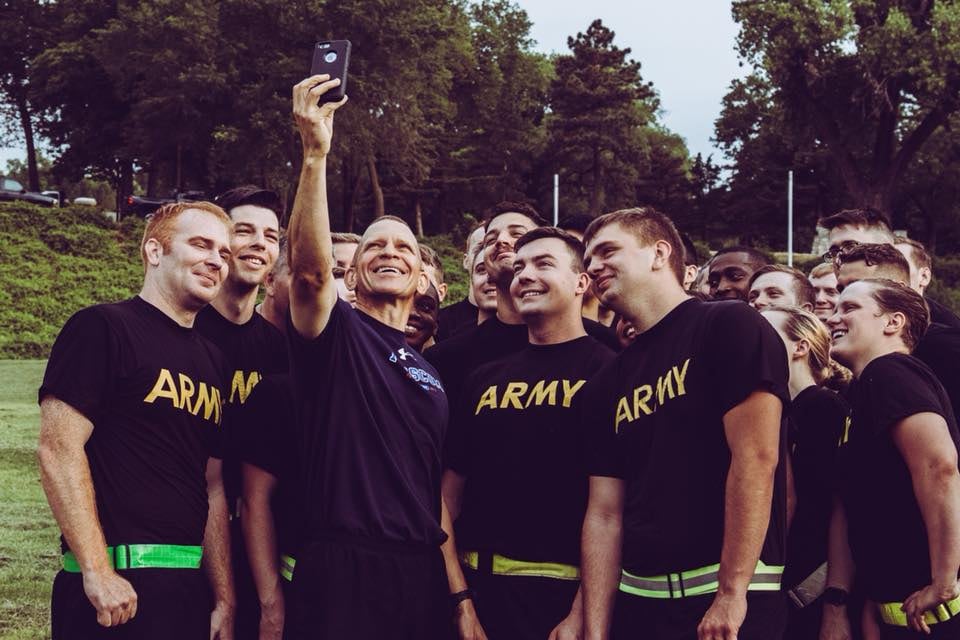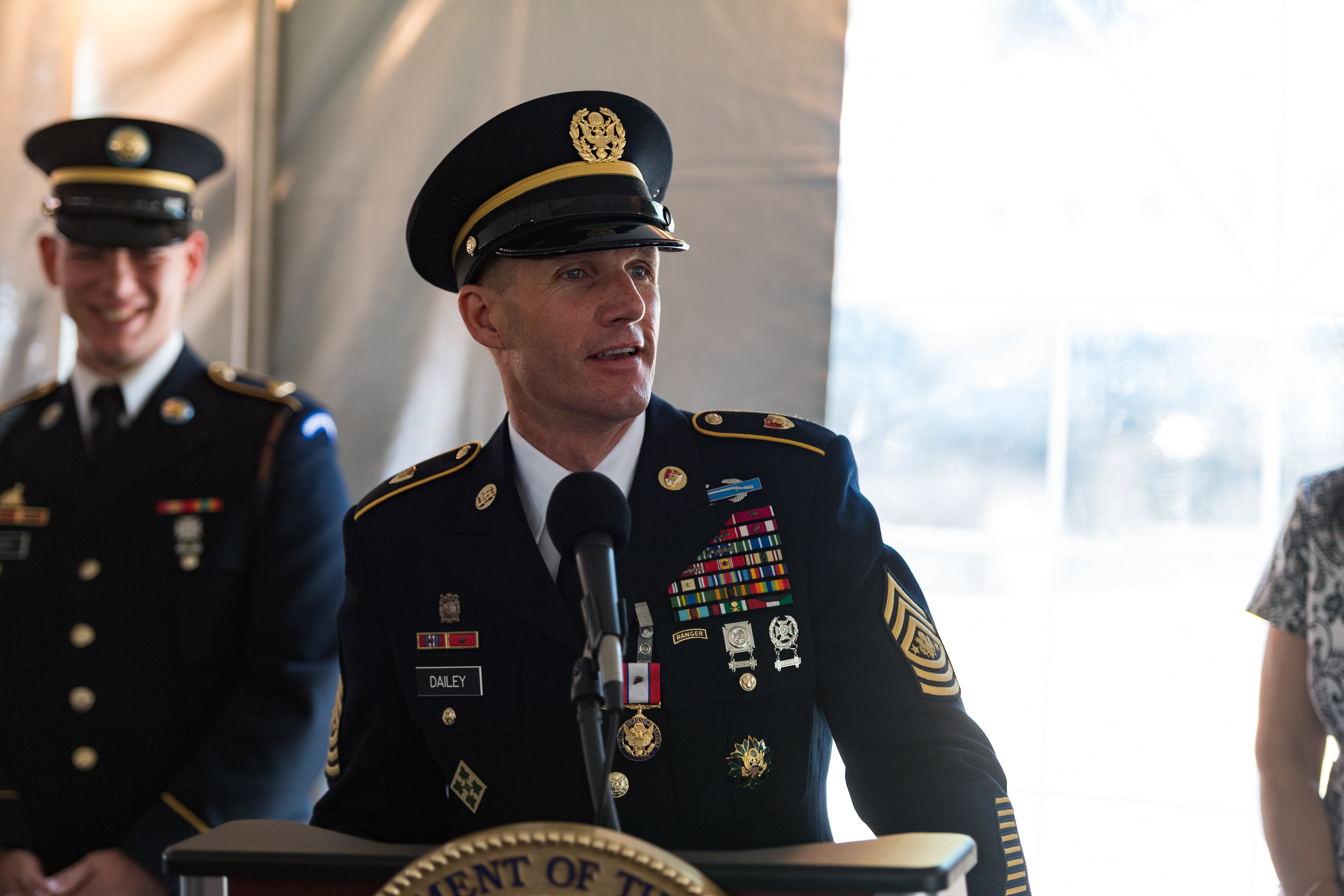During the 15th sergeant major of the Army’s time in the job, he took part in some popular policy changes for soldiers.
But plenty of policy recommendations for the force are still to be implemented, SMA Daniel Dailey said as he transferred the role to 16th SMA Michael Grinston, who officially took over the job on Aug. 9.
One that’s just getting rolling, which Dailey has been passionate about, is the push for credentialing for soldiers to use once they leave active duty.
“If we teach a soldier how to drive a truck that is equivalent to what our civilians are doing in the civilian sector, why shouldn’t we give them a truck driver’s license?” Dailey said in an interview with Army Times during his final days in office.
The new credentialing program is in a pilot phase and will roll out Army-wide in fiscal year 2020. There are about 1,500 credentials, licensures and certifications listed in the Army Cool system, and soldiers will receive roughly $4,500 per year to use toward it or toward tuition assistance.
One of the biggest benefits to the program is that it allows soldiers to study skills both in and out of their jobs. An infantryman, for instance, can use the credentialing program to become a licensed electrician.
“When you go on the battlefield in Iraq and Afghanistan and we are first setting it up, and you’ve got all the infantry soldiers out there. You’ve got to set up an electrical grid for your FOB," Dailey said.
“Well, there is a lot of risk involved in that," he added. "Soldiers get shocked and all those other things. What if one of your soldiers is credentialed in electrical work? Okay, so there are intangible skills there that translate, not directly, but indirectly, to military readiness.”
The benefits also apply to the civilian world, Dailey added, noting that when soldiers leave the service, they’ll return home with actual skills and licenses to begin working in their communities. That decreases the amount of money spent on unemployment compensation for soldiers leaving the service.
“That’s huge, huge dividends paid back," Dailey said.
Black socks and headphones
Other popular changes during Dailey’s time on the job were less challenging to implement, but still made a difference for soldiers across the force, often because he was listening.
The decision to allow black socks with PT uniforms, for instance, was the result of soldier requests to Army senior leaders, and it was a regular topic of conversation during town hall meetings with Dailey.
RELATED

“The black socks came from a PFC,” Dailey said. “Black socks do look better with a black PT uniform. Now I don’t have anything but black socks. I love them.”
Then there was the decision to allow headphones for soldiers in uniform at the gym.
“Why can’t you wear your headphones in the gym? That’s just silly. It’s not a risk,” Dailey said.

Dailey and his team also went after recommendations like renaming the Warrior Leader Course as the Basic Leader Course in order to make it more transferable in the civilian world.
Some bigger projects included revamping the promotion system, which involved doing away with sequence numbers and months-long promotable status.
“The big wins, the tough-to-tackle things were changing our promotion system that’s been that way for 50 some years,” Dailey said. “The team downstairs and the G-1 did nine months of analysis and work.”
“I’m going to be clear to not be self-centered. None of that stuff was done by just me,” he added. “All that stuff was done as an organization, as an institution. We are always working stuff, right. So the Senior Enlisted Council is always working recommendations through the chief and the secretary.”
But at some point, Dailey as the 15th SMA had to stop and hand the docket of initiatives over to the 16th SMA.
As SMA, Grinston will get to roll out some similarly popular policy changes, Dailey told Army Times. But Dailey wanted to save those announcements for his successor.
“I don’t want to steal the thunder of the new SMA,” Dailey said. “He deserves his opportunity.
“So I would say yes, stay tuned,” he said. “I think the new SMA is going to come out with some great things, and I am 100 percent support of them.”
Kyle Rempfer was an editor and reporter who has covered combat operations, criminal cases, foreign military assistance and training accidents. Before entering journalism, Kyle served in U.S. Air Force Special Tactics and deployed in 2014 to Paktika Province, Afghanistan, and Baghdad, Iraq.





